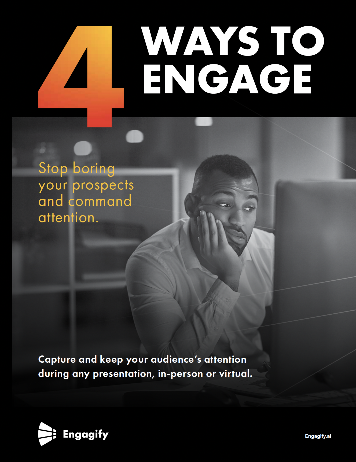Are you in a sales slump?
Looking around, does it seem like other salespeople are having an easier time?
Do you wish you had the natural sales flair you see in others?
Maybe you’re already well aware of your need to better engage clients. Maybe you’ve already taken the time to get the same sales training as a colleague, and still this colleague is doing better than you. Ouch!
But why should this be? When you’re using the exact same tools as your colleague? What do people see in that other person?
Have you ever heard, “just be yourself!” but found that “being yourself” just doesn’t appear to work? Can you, in actual fact, get away with acting like someone else, someone more successful, without feeling phony and foolish?
Most of us avoid lapsing into such behavior. We’ll have learned, perhaps on more than one (embarrassing?) occasion, that “being yourself” is the wisest of all possible behaviors. That might be why we’re perhaps anxious about “living a lie.” But, is “mirroring” someone you admire really that bad? Is it really living a lie, or is it closer to expressing the sentiment, “imitation is the sincerest form of flattery?”
But wait. Maybe improving your sales skills is less about mirroring another salesperson…
…maybe…it’s about mirroring your sales prospect!
What do I mean? Stick with me: I want to be really clear about what I mean by mirroring, when it comes to sales. Consider this definition of “mirroring”:
Mirroring is the behavior in which one person unconsciously imitates the gesture, speech pattern, or attitude of another. Mirroring often occurs in social situations, particularly in the company of close friends or family.
Think of your partner and/or family members and the ways that you repeat or echo certain phrases or behaviors; you probably do have pet phrases — “As far as I’m concerned…that’s all there is to it” — or verbal quirks that you share like “Huh!”; little things that feel distinctly “in-house,” or your own, but shared, consciously or not, with your nearest and dearest. This is common and is in fact a very good thing, in that speech or body language similarity suggests deep mutual listening and even a bond of some kind. So, good for you! There’s clearly communication and even mutual affection in your house! Wonderful!
But then, like any tool, mirroring can be misused:
“Mirroring” is an abuse tactic. It’s when someone acts as though they’re “just like you” and “just what you need” in order to manipulate you as they please.
Okay! We all know those people! …And I do hope you don’t live with ‘em! But, seriously, let’s take the high road here, and agree that we are, in fact, in the honest and honourable business of engagement, not manipulation!
Another name for mirroring is mirroring-and-matching. Frankly, that second name is the one I prefer because it hints to the real goal of mirroring. In the act of mirroring, the goal is to match the other person’s energy in order to bond yourself to them and win them over, inviting them to open up and engage with you. Instead of over-powering them with your charisma, you mirror back their own energy to more easily engage and connect — you’re meeting them on the same level they bring to the conversation.
To do this, you need to pay attention to such things as pace and tonality. For example, imagine one person is from New York City and is talking to a person from Texas. Now, to gain rapport, one of them is going to have to speed up or slow down. Body positions and gestures is where mirroring-and-matching is most often practiced. If the person you’re speaking to has their arms crossed, then you cross your arms. If they gesture with one hand, you do the same. But not in a way that is trying to imitate them overtly. Your movements might be smaller, delayed by, say, 3-10 seconds. Some sales people who’ve had a class in NLP (Natural Language Processing) might imitate others poorly, thinking they will be able to persuade them and manipulate them. (This ties in with the alternative definition of mirroring that is really about abuse tactics! I repeat, this is not what we do!)
Achieving rapport with someone is really done unconsciously. Some extroverts with a high social IQ do this so masterfully they’re not even aware of it as it’s happening. Where the knowledge of mirroring-and-matching is so important is when you know you don’t have a rapport with someone. I mean those instances where your prospect is cold and turned off. Knowing how to create rapport can be a lifesaver in those situations.
Studies have shown we like what is like us. It makes strangers feel familiar. It bonds us together and makes conversation and relationship building easier. It’s been suggested that whenever we encounter others, we are “wired” to see them as similar to ourselves, rather than different. (If you’d like to go deeper into this phenomenon and learn about Mirror Neurons and the discovery of them in Parma, Italy in the 1990s The Mind’s Mirror is a fascinating read)
But for our more immediate purposes there’s also an online glossary that breaks the act of mirroring-and-matching down further and reiterates how effective mirroring can be in bringing you and your prospect to a common understanding of key points in order to draw similar conclusions.
Now, reading that, you might conclude that some of this is either obvious common sense (“Match the vocal energy but don’t mimic the accent”) or debatable (“Nodding three times while listening will make your prospect feel more significant”). If anything, mirroring should be subtle. I’d say you achieve this subtlety by carefully, and quietly observing people’s style, and by style, I refer to how different people communicate.
The results-driven or action-oriented person wants to get straight to the point.
The emotional person prefers to process information, and gradually build an affinity.
The rational and concentrated-on-figures person wants facts, and, like the results-driven person, wants you to get on with it.
Quietly identify, quietly adapt. That’s being subtle.
It may be hard at first, but through practice you’ll become more self aware and learn to trust your subtle shifts in vocal tone and body language. You may find you become a better listener and a better communicator because you’re in tune with your prospect, echoing back their energy. You’ll literally see people become mentally relaxed and open to you. Check out this article for more about how this is done.
Be mindful too that mirroring is not simply repeating what someone else says. You’re really better off paraphrasing, relaying their information back to them in your own words, whenever possible, to show that you both heard it and understood it. Take a read on the person’s energy and body language and subtly dial your own energy to a similar level; let them lead the dance.
And, as obvious as this warning may sound, remember that mirroring is not about being “better” or “smarter” or “cooler” than the person you’re talking to! This is not a competition. This is not a matter of “who’s the fairest one of all?” as a certain fictitious and not-so-nice, mirror-loving monarch would put it. Your purpose is to engage, not enrage!
Mirroring can be a beautiful thing; just try not to get lost in it! The key is to remain conscious of the synchronicity as it’s happening — be self aware and in the moment!
Like with the dance metaphor, this intimate attention to a harmonic relationship with others can make a world of difference.
And, well…why not embrace this concept? I’ve heard it said that, deep down, we’re really all the same!
Here are other ways that changing your behavior can change your success rate at engagement…




